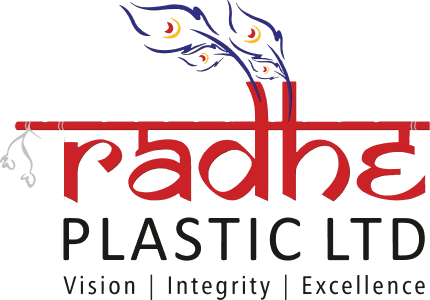The Complexity of Recycled PET
- June 8, 2023
- Posted by: admin
- Category: Business

Do you know that only 9% of the world‘s virgin plastic gets recycled, and the rest are dumped into landfills? Also, in 2020 due to the pandemic recycling rates plateaued because of unsorted plastic waste. The Global pet bottle recycling market is growing at a steady pace with a rising strategy by big companies expecting exponentially rising recycling rates. For e.g.: A leading beverage company like Coca-Cola plans to incorporate up to 50% of the recycled content in its plastic containers by 2030.
There are 5 types of Plastic
| Plastic Type | Usage |
| Polystyrene (PS) | ● Hot drinks cup ● Plastic cutlery ● Yoghurt containers |
| Polyethene terephthalate (PET) | ● Soft drinks and juice bottles ● Water bottle |
| Polyethene | ● Shampoo and milk bottles ● Bin bags |
| Polypropylene (PP) | ● Take-away containers ● Plastic containers ● Hard plastic lunch-box |
| Plasticised Polyvinyl chloride (PVC) | ● Squeeze bottles for sauce and ketchup ● Ice trays |
Out of all types of Plastics, PET bottles are the most popular for their usage and recycling.
Introducing rPET
Recycled PET are also called PET resins. It is usually a mix of a non-toxic resin and a type of polyester used to produce food packaging and clothing. Recycled PET is the most desirable waste management method, resulting in reduced oil usage, carbon dioxide emissions and PET waste requiring disposal because of its non-degradability. With the help of advanced technologies and systems for reducing contamination, mechanical and chemical recycling of PET waste compared to landfills or incineration to recycling is desired.
So, what is the Complexity of recycled PET?
The complexity of recycled PET can be understood from various perspectives, including its physical properties, manufacturing processes, environmental considerations, and technological challenges. Here are some aspects that contribute to the complexity of recycled PET:
1. Different types of Material
Recycled PET bottles and containers are collected through recycling programs or waste management systems, including different types of PET containers, such as soda bottles, water bottles, and food packaging. The recycling process involves collecting and processing these diverse sources, as per their composition, quality, and impurity. Managing their variability poses challenges for consistent product performance and quality control.
2. Contamination and Impurities
PET containers often contain labels, caps, and other non-PET components, as well as potential contaminants like food residue. These impurities must be removed during recycling to ensure the resulting recycled PET meets the required purity standards. Removing these contaminants effectively and efficiently requires advanced sorting, washing, and purification technologies.
3. Different Stages of Processing and Sorting Technologies
Recycling PET involves multiple stages, including collection, sorting, shredding, washing, and pelletising. Each step requires specialised machinery and technologies to handle the material effectively.
- Sorting: The collected PET is sorted based on colour, size, and type. This step helps remove contaminants and separate PET from other plastics.
- Shredding: The sorted PET is then mechanically shredded into small pieces, typically flakes or pellets.
- Washing: The shredded PET undergoes a Hot washing process to remove dirt, labels, adhesives, and other impurities. This step is crucial for obtaining clean and high-quality recycled hot-washed PET flakes.
- Drying: After washing, the PET flakes or pellets are dried to eliminate moisture content, which could affect the quality of the final product.
- Extrusion and Pelletization: The dried PET is melted and extruded through a dye to form thin strands. These strands are then cut into small pellets, ready for further processing.
4. Recycling process -Polymerisation (optional)
In some cases, the recycled PET pellets may undergo a polymerisation process to improve the molecular weight and enhance their properties. This step is essential for applications that require high-quality PET, such as food-grade packaging.
5. End-Use Applications
The recycled PET pellets are used as raw material in various manufacturing processes. Then pellets can be melted and moulded into new bottles, containers, and fibres for textiles, or processed into films for packaging applications. Each application has specific requirements regarding the material’s properties, such as strength, colour, and purity. Meeting these different application needs with recycled PET might be difficult due to inherent variability and potential limits in its performance when compared to virgin PET.
6. Downcycling and Loss of Performance
PET is known to degrade during recycling due to exposure to heat, mechanical stress, and chemical reactions. This degradation can affect the physical and mechanical properties of the recycled PET, such as strength, clarity, and thermal stability. Maintaining the desired performance characteristics of recycled PET requires careful control of processing parameters, such as temperature, residence time, and additive selection.
7. Environmental Considerations
The complexity of recycled PET also extends to the environmental aspects. While recycling PET helps reduce waste and conserve resources compared to using virgin materials, it involves complex considerations like energy consumption, water usage, and carbon emissions associated with the recycling process. Balancing these environmental factors with the benefits of recycling requires a complete understanding of the life cycle impacts and continual improvement of recycling technologies.
Recycle with Us
Recycling PET bottles is important for reducing plastic pollution, but it can introduce chemicals and affect safety and quality. To address these complexities, advancements in recycling technologies, process optimization, and quality control measures are needed. Radhe Plastic Ltd believes in a circular economy and recycles 100,000 to 120,000 PET bottles daily, promoting environmental consciousness and eco-friendly practices. Our goal is to lower our carbon footprint and help protect the environment for future generations by promoting the usage of recycled plastic.
